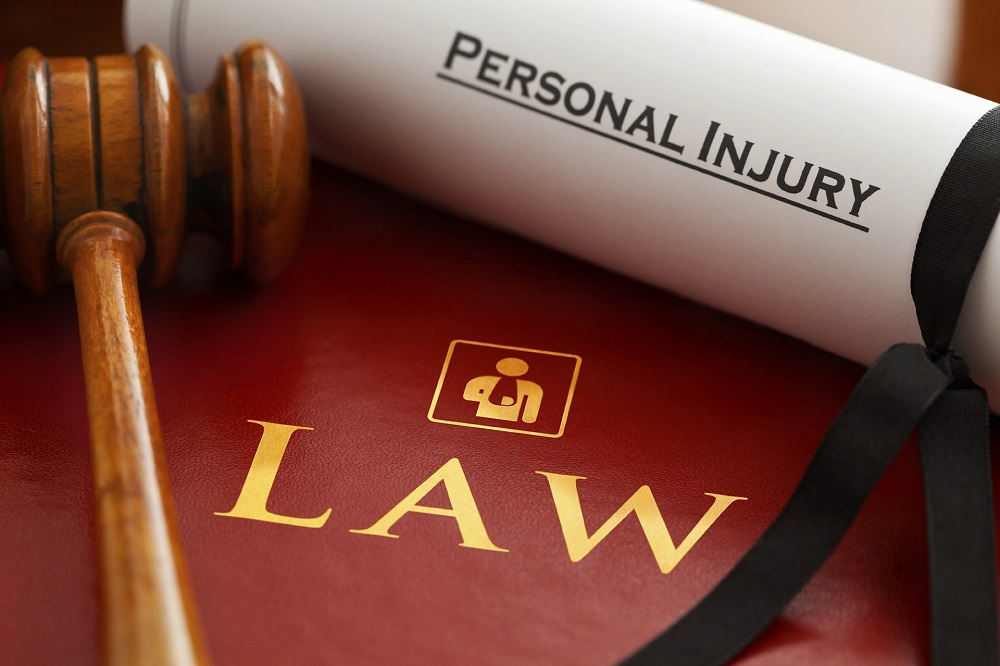As an experienced personal injury attorney specializing in lead poisoning cases, I understand the devastating impact that lead exposure can have on individuals and families. Lead poisoning is a serious public health issue that can lead to a range of health problems, from cognitive impairment and developmental delays to neurological damage and even death. In this article, I will explore the legal implications of lead poisoning and the crucial role that a lead poisoning attorney plays in personal injury cases.
Contents
Understanding Lead Poisoning and Its Impact on Personal Health
Lead is a highly toxic substance that can be found in various sources, such as old paint, contaminated soil, and even drinking water. Exposure to lead, especially in children, can have severe and long-lasting consequences. Lead poisoning can cause a range of health issues, including:
- Developmental delays and learning disabilities
- Behavioral problems and attention deficits
- Hearing loss
- Kidney damage
- Cardiovascular problems
- Reproductive issues
The effects of lead poisoning can be particularly devastating for children, as their growing bodies and brains are more vulnerable to the harmful effects of this toxic substance. Early detection and intervention are crucial in mitigating the impact of lead exposure and ensuring the best possible outcomes for those affected.
The Legal Implications of Lead Poisoning
Lead poisoning is not just a public health issue; it also has significant legal implications. When individuals or families are exposed to lead due to the negligence or recklessness of others, they may have grounds for a personal injury lawsuit. This can include cases where:
- Property owners fail to properly maintain or remediate lead-based paint in their buildings.
- Landlords neglect to address lead contamination in rental properties.
- Manufacturers produce and distribute lead-containing products without adequate safety measures.
- Government agencies fail to enforce regulations or take appropriate action to protect the public from lead exposure.
In these situations, victims of lead poisoning may be entitled to compensation for their medical expenses, lost wages, pain and suffering, and other damages. A lead poisoning attorney can play a crucial role in navigating the legal system and ensuring that their clients receive the justice and compensation they deserve.
The Role of a Lead Poisoning Attorney in Personal Injury Cases
A lead poisoning attorney is a specialized personal injury lawyer who has in-depth knowledge and experience in handling cases involving lead exposure. Their primary responsibilities include:
- Investigating the source of the lead exposure and gathering evidence to support the case.
- Identifying all potentially liable parties, such as property owners, landlords, manufacturers, or government agencies.
- Evaluating the extent of the client’s injuries and the long-term health implications of lead poisoning.
- Calculating the appropriate amount of compensation for the client’s medical expenses, lost wages, and other damages.
- Negotiating with insurance companies and opposing parties to secure a fair settlement.
- Representing the client in court if a settlement cannot be reached.
By hiring a lead poisoning attorney, clients can ensure that their legal rights are protected and that they receive the maximum compensation available for their injuries and losses.
How to Find a Reputable Lead Poisoning Attorney
When searching for a lead poisoning attorney, it’s important to look for someone with the following qualifications:
- Extensive experience in personal injury law, with a focus on lead poisoning cases.
- A proven track record of successful settlements and verdicts in lead poisoning lawsuits.
- Strong knowledge of federal and state regulations related to lead exposure and remediation.
- A deep understanding of the medical and scientific aspects of lead poisoning.
- A commitment to providing personalized attention and support to their clients throughout the legal process.
To find a reputable lead poisoning attorney, you can start by asking for referrals from your primary care physician, local legal aid organizations, or trusted community resources. You can also search online for attorneys who specialize in lead poisoning cases in your area and review their credentials, client testimonials, and case histories.
The Importance of Gathering Evidence in Lead Poisoning Cases
In lead poisoning cases, the strength of the evidence is crucial in securing a favorable outcome. A lead poisoning attorney will work diligently to gather and document the following types of evidence:
- Medical records and test results that confirm the client’s lead exposure and the extent of their injuries.
- Environmental testing reports that identify the source of the lead contamination.
- Maintenance and repair records for the property or product involved in the lead exposure.
- Witness statements and expert testimony to support the case.
- Documentation of the client’s financial losses, such as medical bills and lost wages.
By meticulously collecting and organizing this evidence, a lead poisoning attorney can build a compelling case that demonstrates the full extent of the client’s injuries and the liability of the responsible parties.
Steps Involved in Filing a Lead Poisoning Lawsuit
Filing a lead poisoning lawsuit typically involves the following steps:
- Initial consultation with the lead poisoning attorney to discuss the case and determine the appropriate legal strategy.
- Gathering and reviewing all relevant evidence, including medical records, environmental testing reports, and financial documentation.
- Identifying all potentially liable parties and preparing the necessary legal documents, such as the complaint and summons.
- Filing the lawsuit with the appropriate court and serving the defendants with the legal documents.
- Engaging in the discovery process, which involves exchanging information and evidence with the opposing party.
- Negotiating with the defendants or their insurance companies to reach a fair settlement.
- If a settlement cannot be reached, preparing for and representing the client in a trial.
Throughout this process, the lead poisoning attorney will provide guidance, support, and advocacy to ensure that the client’s rights are protected and their interests are represented effectively.
Factors to Consider When Seeking Compensation for Lead Poisoning
When seeking compensation for lead poisoning, there are several factors that a lead poisoning attorney will consider, including:
- The extent and severity of the client’s injuries, both in the short and long term.
- The medical expenses incurred for diagnosis, treatment, and ongoing care.
- The impact of the lead poisoning on the client’s ability to work and earn a living.
- The emotional and psychological toll of the lead exposure, including pain and suffering.
- The potential for future medical complications and the need for ongoing monitoring or treatment.
- The liability of the responsible parties and the strength of the evidence against them.
By carefully evaluating these factors, a lead poisoning attorney can develop a comprehensive strategy to maximize the client’s compensation and ensure that their needs are fully addressed.
The Benefits of Hiring a Lead Poisoning Attorney
Hiring a lead poisoning attorney can provide numerous benefits for individuals and families affected by lead exposure, including:
- Expertise and experience in navigating the complex legal system.
- Thorough investigation and evidence-gathering to build a strong case.
- Effective negotiation and advocacy to secure fair settlements or jury awards.
- Access to a network of medical and scientific experts who can provide valuable testimony.
- Emotional support and guidance throughout the legal process.
- The ability to focus on their recovery and well-being while the attorney handles the legal aspects of the case.
By working with a lead poisoning attorney, clients can increase their chances of obtaining the compensation they deserve and ensure that their rights are protected throughout the legal process.
Common Challenges in Lead Poisoning Cases and How an Attorney Can Help
Lead poisoning cases can be complex and challenging, with a range of obstacles that must be overcome. Some of the common challenges include:
- Establishing the source of the lead exposure and proving liability.
- Navigating the complex web of federal, state, and local regulations related to lead.
- Obtaining accurate and comprehensive medical evidence to support the client’s injuries.
- Countering arguments from the opposing party or their insurance company.
- Securing fair compensation that adequately addresses the client’s long-term needs.
A lead poisoning attorney can help clients overcome these challenges by:
- Conducting thorough investigations to identify the source of the lead exposure.
- Utilizing their extensive knowledge of relevant laws and regulations.
- Collaborating with medical and scientific experts to build a strong case.
- Negotiating effectively with opposing parties and their legal teams.
- Advocating for the client’s rights and ensuring that they receive the compensation they deserve.
By working with a lead poisoning attorney, clients can increase their chances of a successful outcome and obtain the resources they need to recover and move forward.






